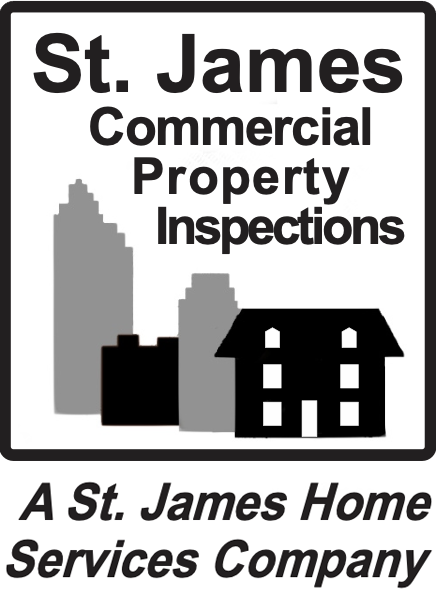Eco-consciousness is important in many industries, including commercial real estate. For property owners, embracing green practices aligns with environmental responsibility, offers cost-saving opportunities, and enhances property value. Let’s look at sustainability for your commercial property, delve into current trends, and outline measures for reducing environmental impact while maximizing returns.
The Importance of Sustainability in Commercial Real Estate
Sustainability is no longer just a buzzword; it’s an essential consideration for commercial property owners. Businesses and consumers are emphasizing eco-friendly practices more, and this shift has reshaped expectations within the real estate market. Sustainable buildings contribute to a healthier environment and offer tangible benefits, including reduced operating costs, improved tenant satisfaction, and enhanced marketability.
Key Sustainability Trends for Your Commercial Property
Energy Efficiency
Improving energy efficiency is one of the cornerstones of sustainable building practices. Property owners can achieve this by upgrading to energy-efficient lighting systems, installing smart thermostats, and implementing renewable energy solutions like solar panels.
Sustainability for Your Commercial Property: Water Conservation
Conserving water is another aspect of sustainability. Install low-flow plumbing fixtures, implement landscaping designs to minimize water usage, and use rainwater harvesting systems to reduce reliance on municipal water sources.
Waste Management
Adopting effective waste management can reduce the environmental footprint of commercial properties. Implementing recycling programs, composting organic waste, and using materials with a high recycled content are ways to promote waste reduction and keep materials out of landfills.
Indoor Air Quality
Improve indoor air quality to contribute to the health and well-being of occupants and improve overall building performance. Use low-VOC (volatile organic compound) materials, maintain proper ventilation systems, and invest in air purification systems for your property.
Green Building Certifications
Certifications such as LEED (Leadership in Energy and Environmental Design) and BREEAM (Building Research Establishment Environmental Assessment Method) provide third-party validation of a building’s sustainability. Pursuing these certifications enhances the marketability and value of commercial property while demonstrating a commitment to environmental stewardship.
Practical Measures for Property Owners
Conduct a Sustainability Audit for Your Commercial Property
Begin by assessing the environmental performance of your property. Identify areas for improvement and prioritize updates based on impact and return on investment.
Invest in Energy-Efficient Upgrades
Upgrade lighting to LED fixtures, install programmable thermostats, and retrofit HVAC systems with energy-efficient alternatives. These investments offer long-term savings on utility bills while reducing carbon emissions.
Incorporate Water-Saving Solutions
Install efficient fixtures, repair leaks promptly, and explore options for greywater recycling or reuse. Property owners lower operational costs and alleviate pressure on local water resources by minimizing consumption.
Promote Sustainable Transportation
Encourage alternative transportation options such as cycling, walking, and carpooling by providing bike racks, showers, and designated carpool parking spaces. Install electric vehicle charging stations to support the growing trend towards electric cars.
Sustainability for Your Commercial Property: Educate Tenants and Stakeholders
Encourage tenants, employees, and other stakeholders to participate in sustainability by providing educational resources, hosting workshops, and fostering a culture of environmental responsibility. By encouraging awareness, property owners enhance the impact of sustainability efforts.
Incorporating sustainable practices into commercial property management is a strategic business decision. By embracing eco-conscious trends, property owners save money, enhance tenant satisfaction, and protect their investments in an increasingly eco-conscious market.
FAQs
What are the misconceptions about implementing sustainability practices in commercial property management?
A common misconception is that sustainability initiatives are costly and require significant upfront investment. Many sustainability measures offer long-term savings through reduced utility bills and operational expenses.
How can I measure the environmental impact of my commercial property and track improvements over time?
Use environmental performance tracking software or third-party assessments to measure key metrics like energy consumption, water usage, waste generation, and indoor air quality. Tracking these metrics helps identify areas for improvement and monitor progress toward sustainability goals.
Are government incentives or financial assistance programs available to support sustainability efforts in commercial properties?
Many government agencies offer grants, tax credits, or low-interest loans to encourage commercial property owners to invest in sustainable practices. These programs help offset the costs of implementing energy-efficient upgrades, renewable energy systems, and water conservation measures.
What technologies or strategies can enhance sustainability in a commercial building?
Innovations such as sensors for real-time monitoring of energy usage, green roofs and living walls for natural insulation and biodiversity, and building automation systems for energy management contribute to enhanced sustainability.
How can I communicate my property’s sustainability initiatives to tenants or investors?
Showcase benefits such as cost savings, improved indoor air quality, and enhanced tenant satisfaction. Use marketing materials, case studies, and certifications to highlight your property’s commitment to sustainability and attract environmentally-conscious tenants or investors.
St. James Commercial Property Inspections provides commercial inspection services in Durham, Alamance, Caswell, Chatham, Franklin, Granville, Orange, Person, Vance, and Wake Counties of North Carolina. Contact us to schedule an appointment.

